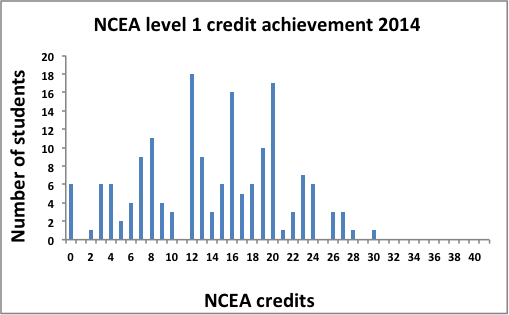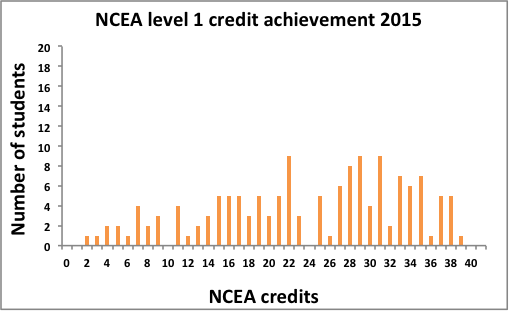Raising NCEA achievement at year 11 using Polyfest as an authentic learning context
Tags: English | Learning languages | Science | Social sciences | The Arts | Visual arts | Multimedia – graphics/animation | Multimedia – video | Secondary | Upper secondary |
Polyfest provided Māngere College with the opportunity to re-think curriculum planning and design to improve student achievement results for NCEA.
Māngere College, which has a student population of 78% Pasifika and 19% Māori, was engaged in the Secondary Student Achievement (SSA) professional learning and development initiative for 18 months (2015-2016).
Teachers redesigned their senior school learning programmes so that at least one NCEA achievement standard was linked to Polyfest in English, science, social sciences, and languages. NCEA results improved significantly with record results for the college in 2015.
Students received 4 NCEA credits for their dance performances at Polyfest. Students valued using Polyfest as a learning context. They were motivated by the authentic, relevant learning context and gained a depth of cultural understanding.
Polyfest: An opportunity for learning
During the scoping stages of the SSA work in early 2014, middle school leaders voiced concern that Polyfest dominated and interrupted the academic progress of their students in term one putting students at risk. The festival, which has students and schools competing for awards ranging from speech competitions to cultural dances and performances, involves around 75% of the students every year.
To confront this challenge, middle leaders at the college agreed that their professional learning and development (PLD) should be restructured to focus on making Polyfest an opportunity for learning.
Students, Zahra and Chris describe making the background mural for Polyfest as part of the Art curriculum.
Polyfest as a vehicle for achieving NCEA standards
Examples of the significant changes in course design to incorporate Polyfest into student learning
- Science – biology level 1 AS90925 achievement – Carry out a practical investigation in a biological context with direction , to meet this standard, students collected pulse rate data related to their Polyfest performances.
- English – visual language level 1 AS90855 – Create a visual text , teachers used students' identity, language, and culture as levers for improved student learning. Assessment processes were changed to incorporate the oral nature and focus of Polyfest.
- Social sciences – geography level 3, AS91428 – Analyse a significant contemporary event from a geographic perspective
was used to:
- explore and appreciate the roles of different groups in the planning of Polyfest before, during, and after the event
- appreciate the significance of this event both locally and on a national scale
- investigate planning needs and how to fit it in with the Resource Management Act and local government regulations
- analyse the impacts that the festival has socially, economically, and environmentally in the neighbourhood
-
explore how to minimise adverse effects.
- Languages studied at the college include: Cook Island Māori, Samoan, Tongan and Te Reo Māori. The event’s theme – Enlightenment through Education or Ka mārama i te aho o Mātauranga – was the focus for students' presentations across NEA levels 1-3. In addition, at least one piece of writing and/or interaction was also put towards students' portfolios. Dance credits were also achieved by students who performed in the cultural groups.
Students, Edna, Sesiona, and Mark describe e-posters they designed as part of their visual arts NCEA assessments to reflect their identity and culture.
Polyfest raises student achievement
The graphs below show increases in internal NCEA level 1 credits from May 2014 to May 2015.
In May 2014:
- 50% of year 11 students had gained between 8-18 credits
- only 25% have 17 or more credits.
- no students had over 30 credits.
In May 2015:
- the middle 50% gained between 18-32 credits
- 75% of students have 17 or more credits
- 30% have more than 30 credits.
Ouctomes of incorporating Polyfest into the curriculum
Successes from using Polyfest as an authentic context for learning
Significantly accelerated student achievement
By the end of 2014:
- Level 1: two students gained NCEA certificates endorsed with Excellence, 16 with Merit endorsements – the school had previously only 1 Excellence endorsement in the last ten years.
- Level 2: the college had its first ever Excellence endorsement, as well as 15 Merit endorsements
- Level 3: 11 Merit endorsements were gained.
Success in Polyfest competitions
In speeches, the college gained: five first placings, 3 seconds, and 2 third placings across years 9-13 in the Tongan, Samoan, and Cook Islands stages. The Samoan and Tongan cultural groups were the overall winners in their stages.
A changed school culture
The professional learning and development (PLD) goals set in 2015:
"My whole relationship with the priority students has shifted."
- gave teachers opportunities to approach curriculum planning and design from new perspectives
- embedded a set a core beliefs to support a culture of collective responsibility towards improving student outcomes
- supported middle leaders in working cohesively as a group
- gave structure to PLD sessions which celebrate student achievement and identify the learning needs of students.
Enhanced teaching and learning
"It’s not the Team Solutions facilitators anymore who are presenting the data analysis to the whole staff. It is us doing it now."
One of the key foci for the SSA work is enhancing the quality of teaching and learning in each learning area across the school. To support this goal, middle leaders co-designed a reflective a tool from a range of research and resources such as the BES series, Leading from the Middle, Action Plan for Pacific Education, Ka Hikitia, Success for All, Practising Teacher Criteria, and ERO national reports. Middle leaders have taken this aspect of the SSA work on board and are now themselves leading the trial of the tool in a variety of settings to ensure its robustness and relevance for its intended purposes.

